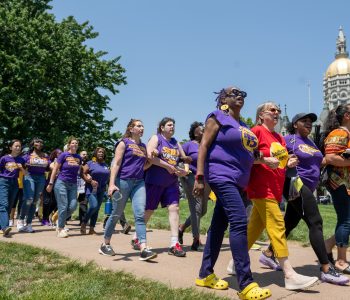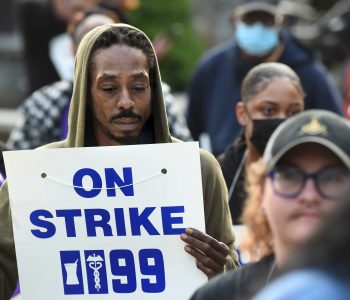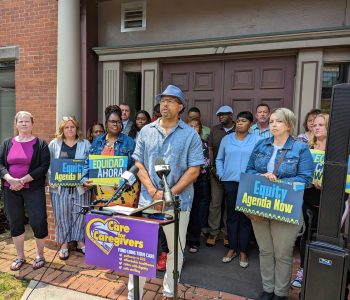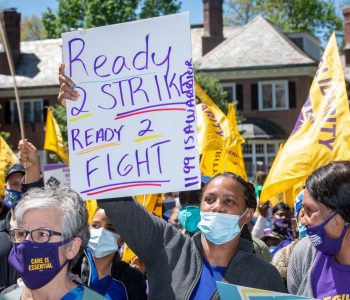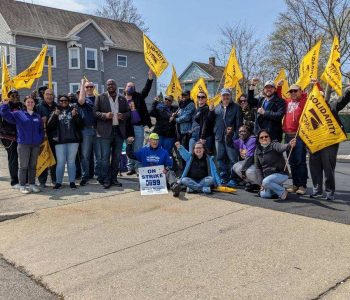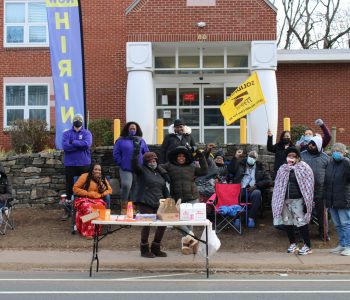They don’t wear capes. But they do have masks.
Doctors left their private practices to help staff emergency rooms and intensive care units. Nurses held the hands of dying patients too contagious to see their family members. At some nursing homes, employees continued to work even as the outbreak spread among residents and staff alike.
In this special tribute section, we share the stories of some of the many caregivers and medical professionals across the state who have fought COVID-19 on the front lines since March in a variety of roles across the health care spectrum. While enduring unprecedented risk and falling sick themselves in record numbers, these real-life masked crusaders rose to the historic challenges of these times. One of our members, Yvonne Ellis was featured in CT Magazine. Check out the feature below:
Residential program worker at an Oak Hill group home
By Erik Ofgang

”We’re exhausted. Everybody wants to go back to normal.”
Yvonne Ellis knows as well as anyone the terrible toll COVID-19 can take. On March 21 her mother, Shirley Parisi, was among the earliest to die of the disease in Virginia.
Ellis traveled from her home in Ashford to be with her at the end and both Ellis and one of her sisters were allowed in the hospital, but not into the isolation room where their mother spent her final moments. “We watched her die through glass,” Ellis says.
Back in Connecticut, as the pandemic progressed through the state and country, Ellis didn’t have the luxury of staying home. A residential program worker, she belongs to an all-too-often-overlooked category of essential worker: those who care for people with intellectual disabilities.
She works for Oak Hill at a group home in Coventry with four residents with intellectual disabilities who require 24-hour care. Though she and her co-workers wear protective gear and social distance, such concepts can’t be conveyed to the residents of the house. “They don’t understand that they have to keep 6 feet apart,” she says, and none of them will wear masks. Group outings have been canceled, as have trips home and visits from family members.
“The clients are really affected. They do really well on a schedule and now it’s hard for them because they’re not on a schedule,” Ellis says. “They can’t see their parents. We have one girl that goes home every weekend. We have another one whose mother comes every Sunday.”
That was before the coronavirus. Although the virus has not spread to the home she works at, Ellis is wary. She notes that even though her clients are unable to wash or feed themselves, those who work at the facility are not considered “essential health care workers.” Ellis wants that to change. Though her company just gave workers a $2-an-hour, hazard-pay raise, she says federal recognition would help them obtain things like PPE and cleaning supplies. “You would like to have a face shield if someone is coughing in your face. You would like to have facemasks that are not so thin you can see your hand through them,” Ellis says. “We’re running out of hand sanitizer.”
Ellis started in the field 30 years ago because she has a sister who now lives in a group home. “I had been raised with someone who had mental disabilities. I wasn’t afraid of it. I wasn’t put off by it.” She adds, “I love the clients.”
In addition to pushing for those who do what she does to get designation as essential health care workers, Ellis wants the same thing everyone else wants. ”We’re exhausted. Everybody wants to go back to normal,” she says. Unfortunately, she doesn’t expect that to happen anytime soon.
Check out the rest featured healthcare heroes of the by clicking the link:
